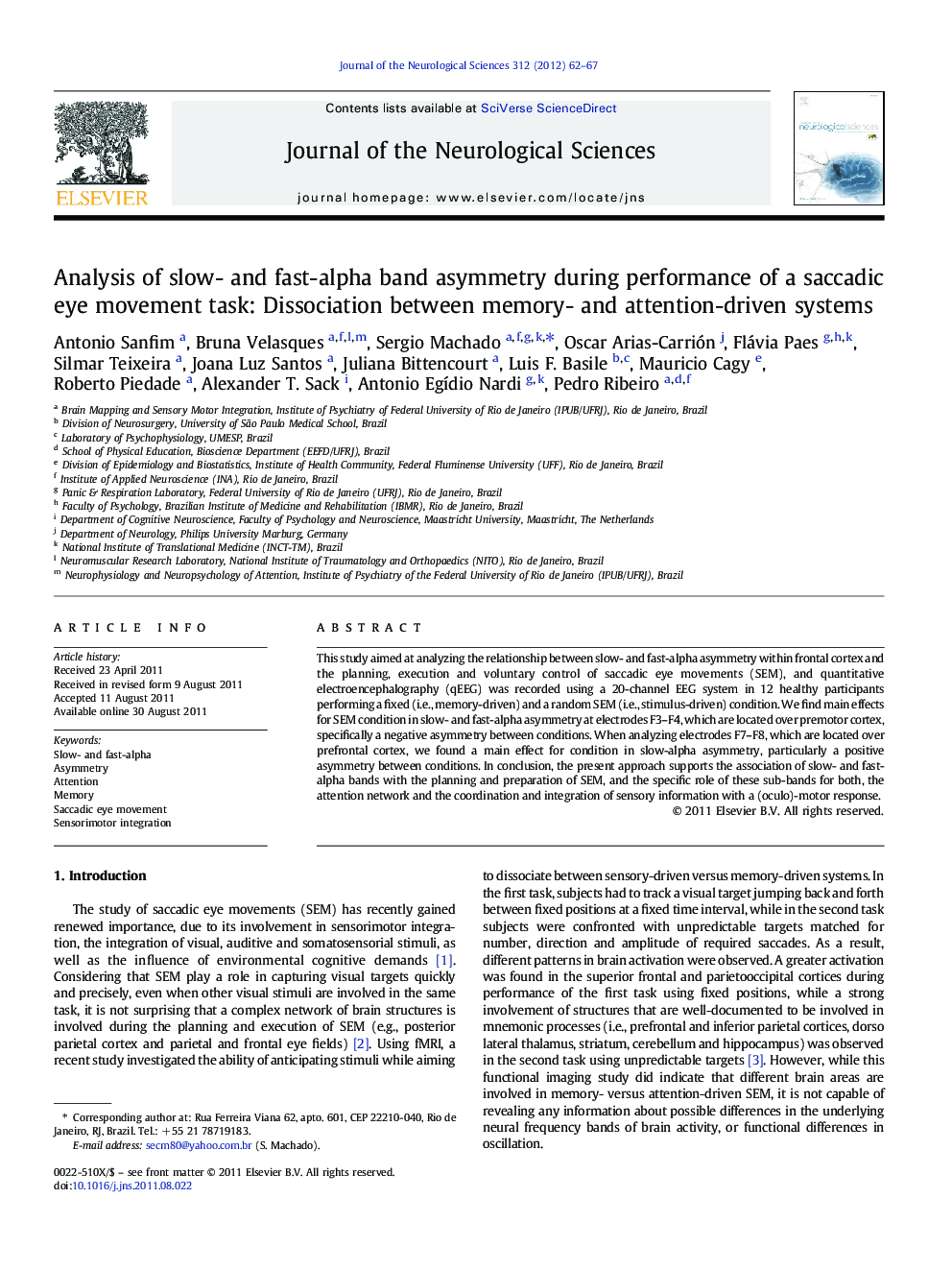| کد مقاله | کد نشریه | سال انتشار | مقاله انگلیسی | نسخه تمام متن |
|---|---|---|---|---|
| 1914045 | 1535150 | 2012 | 6 صفحه PDF | دانلود رایگان |
عنوان انگلیسی مقاله ISI
Analysis of slow- and fast-alpha band asymmetry during performance of a saccadic eye movement task: Dissociation between memory- and attention-driven systems
دانلود مقاله + سفارش ترجمه
دانلود مقاله ISI انگلیسی
رایگان برای ایرانیان
کلمات کلیدی
موضوعات مرتبط
علوم زیستی و بیوفناوری
بیوشیمی، ژنتیک و زیست شناسی مولکولی
سالمندی
پیش نمایش صفحه اول مقاله

چکیده انگلیسی
This study aimed at analyzing the relationship between slow- and fast-alpha asymmetry within frontal cortex and the planning, execution and voluntary control of saccadic eye movements (SEM), and quantitative electroencephalography (qEEG) was recorded using a 20-channel EEG system in 12 healthy participants performing a fixed (i.e., memory-driven) and a random SEM (i.e., stimulus-driven) condition. We find main effects for SEM condition in slow- and fast-alpha asymmetry at electrodes F3-F4, which are located over premotor cortex, specifically a negative asymmetry between conditions. When analyzing electrodes F7-F8, which are located over prefrontal cortex, we found a main effect for condition in slow-alpha asymmetry, particularly a positive asymmetry between conditions. In conclusion, the present approach supports the association of slow- and fast-alpha bands with the planning and preparation of SEM, and the specific role of these sub-bands for both, the attention network and the coordination and integration of sensory information with a (oculo)-motor response.
ناشر
Database: Elsevier - ScienceDirect (ساینس دایرکت)
Journal: Journal of the Neurological Sciences - Volume 312, Issues 1â2, 15 January 2012, Pages 62-67
Journal: Journal of the Neurological Sciences - Volume 312, Issues 1â2, 15 January 2012, Pages 62-67
نویسندگان
Antonio Sanfim, Bruna Velasques, Sergio Machado, Oscar Arias-Carrión, Flávia Paes, Silmar Teixeira, Joana Luz Santos, Juliana Bittencourt, Luis F. Basile, Mauricio Cagy, Roberto Piedade, Alexander T. Sack, Antonio EgÃdio Nardi, Pedro Ribeiro,